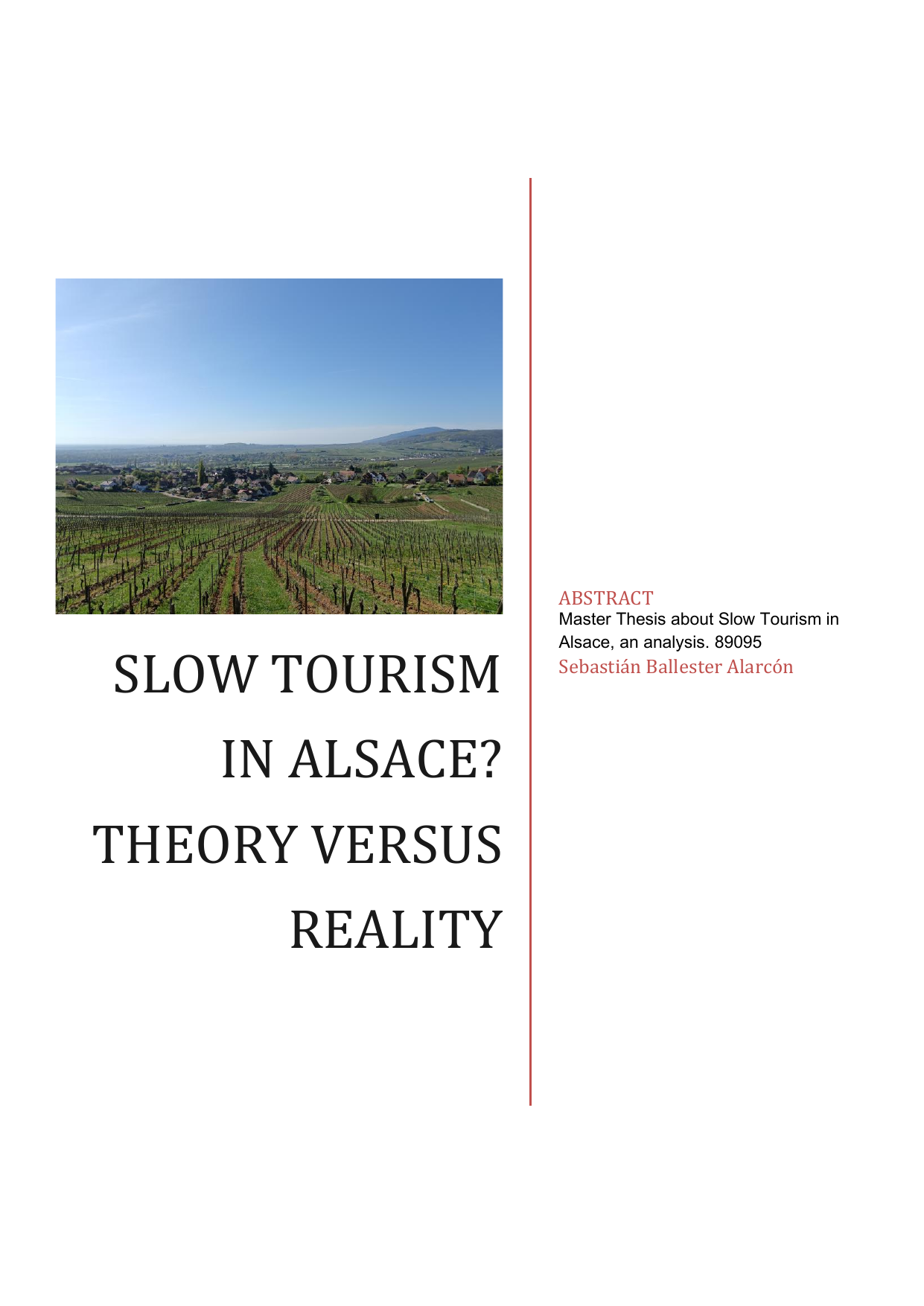
SLOW TOURISM IN ALSACE? THEORY VERSUS REALITY
Author
Term
4. term
Education
Publication year
2025
Submitted on
2025-05-29
Abstract
This thesis explores the phenomenon of Slow Tourism in the Alsace region of northeastern France, critically examining the intersection between theory and practice. Amid a global tourism industry increasingly scrutinized for its environmental, social, and cultural impacts, Slow Tourism emerges as a sustainable, reflective alternative to mass tourism. It promotes immersive, mindful travel that emphasizes local engagement, cultural authenticity, sustainability, and personal well-being. Through a constructivist, qualitative approach, this research evaluates how the principles of Slow Tourism are understood, implemented, and experienced by tourists, locals, and institutional actors in Alsace. Alsace offers a compelling case study due to its well-preserved villages, extensive cycling and walking infrastructure, strong culinary and wine traditions, and regional efforts to promote responsible tourism. However, the study reveals a significant gap between the theoretical ideals of Slow Tourism and the on-the-ground realities of tourist behaviour and regional policy execution. Data collection included semi-structured interviews with tourists and stakeholders, field observations, and the analysis of strategic and marketing reports from VisitAlsace and other regional institutions. These sources were coded and thematically analysed to extract patterns related to tourists’ motivations, travel behaviours, experiences, and perceptions. Findings indicate that while many tourists unknowingly engage in Slow Tourism practices—such as walking, cycling, enjoying local cuisine, and engaging with local communities—the majority are unfamiliar with the formal concept. Most visitors still exhibit behaviours associated with conventional tourism, including short stays, limited cultural immersion, and constrained interaction with locals. Institutional strategies in Alsace, while aligning in part with Slow Tourism values, rarely use the term explicitly and face challenges in translating these ideals into widespread practices. Barriers include rigid dining hours, expensive and sometimes inflexible public transport, and the dominance of heavily marketed attractions that concentrate visitors in a few locations, creating localized overtourism. The study introduces the concept of "deceleration" as central to understanding Slow Tourism, comprising embodied, technological, and episodic forms that shape tourists’ perception of time and engagement. Alsace provides natural and built environments conducive to such deceleration, yet effective engagement depends significantly on tourists’ willingness and ability to embrace these slower rhythms. The constructivist approach reveals that the construction of a slow travel experience is co-created between visitor intention and regional offerings. Ultimately, the research underscores that infrastructure and institutional support, while crucial, are insufficient without an accompanying cultural shift among tourists and a targeted strategy to encourage behavioural change. Recommendations include enhancing visitor education around slow travel, diversifying cultural programming beyond peak seasons, and improving accessibility and affordability of sustainable transport options. Alsace is well-positioned to become a model of Slow Tourism, but a deeper alignment between theoretical values, regional strategies, and actual tourist behaviour is necessary to fully realize this potential. This thesis contributes to the growing academic discourse on sustainable tourism by providing empirical insights into the complexities of implementing Slow Tourism within a specific regional context.
Documents
